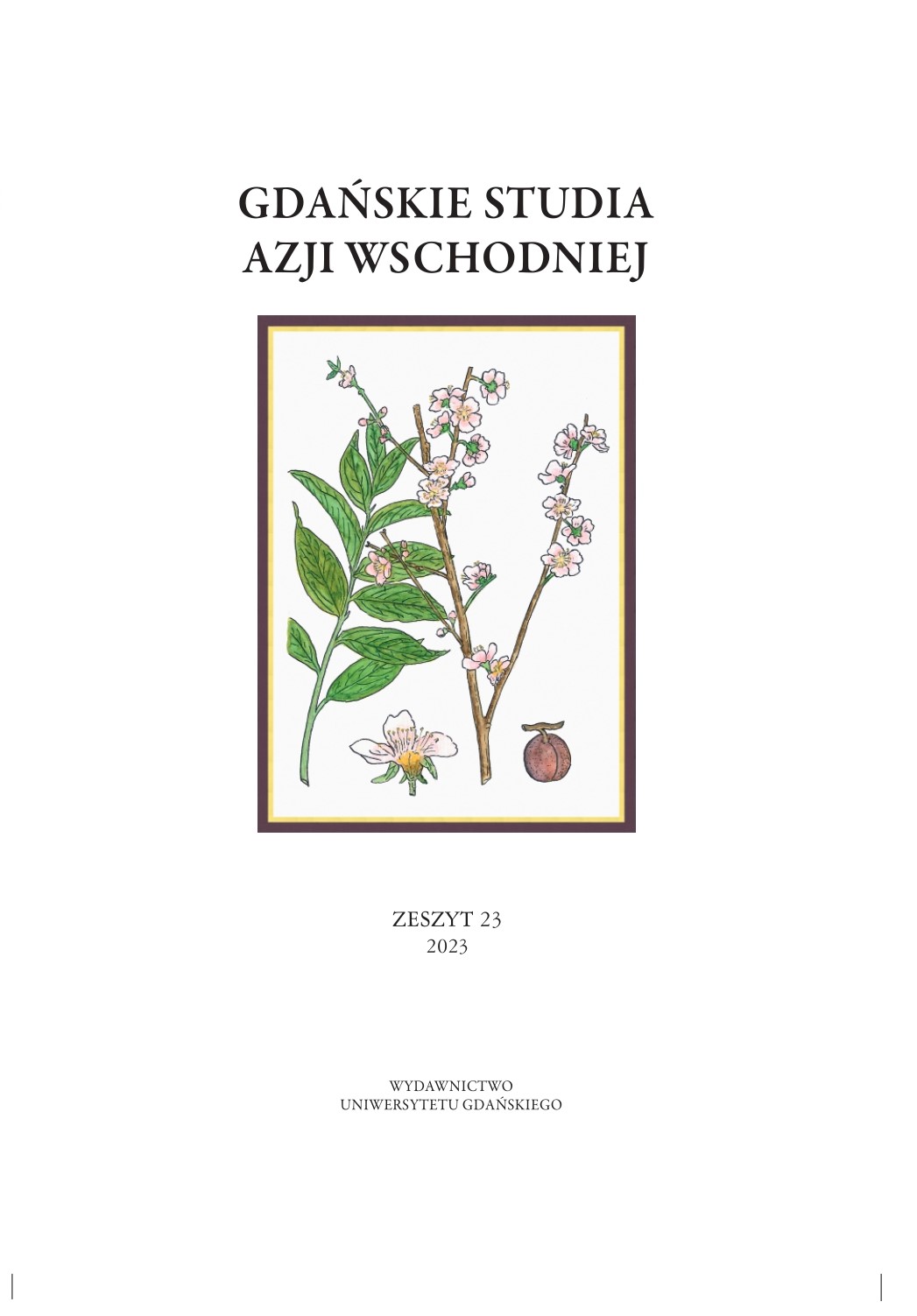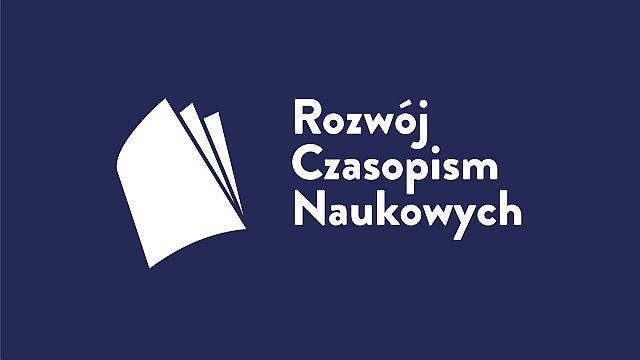Wybrane aspekty niematerialnego i materialnego dziedzictwa konfucjanizmu w Korei Północnej
Abstrakt
Celem artykułu jest omówienie niematerialnych i materialnych elementów dziedzictwa związanych z konfucjanizmem w Korei Północnej. Autor stawia tezę, że istnieje dychotomia między oficjalnym dyskursem, przywiązaniem przywódców Korei Północnej do wartości konfucjańskich a polityką wobec konfucjańskiego dziedzictwa istniejącego w Korei Północnej. Badania opierają się w dużej mierze na dokumentach północnokoreańskich. Odpowiedź na postawiony problem badawczy pozwoli określić, jakie jest miejsce konfucjanizmu w oficjalnym dyskursie i dziedzictwie kultury Korei Północnej. Autor odpowiada na pytanie, dlaczego materialne dziedzictwo konfucjańskie jest narzędziem polityki kulturowej Korei Północnej.
Downloads
Bibliografia
Becker J., Rogue regime: Kim Jong Il and the looming threat of North Korea, Oxford University Press, Oxford 2005.
Boer R., “Confucius and Chairman Mao: towards a study of religion and Chinese Marxism,” Crisis and Critique 2015, vol. 2, issue 1.
Chabanol E., “Study of the Archaeological and Historic Sites of Kaesŏng,” Transactions of the Royal Asiatic Society Korea Branch 2005, vol. 80.
Dziak W.J., Sajewski K., Korea Północna. U źródeł rodzinnej sukcesji władzy, Instytut Studiów Politycznych PAN, Warszawa 2009.
Glomb V., Lee E.J., Gehlmann M., Confucian Academies in East Asia, Brill, Leiden 2020.
Jang K.H., Uri C.H.A.E., “Achievements in Studies of North Korean Cultural Heritage and Future Prospects,” The Review of Korean Studies 2020, vol. 23, no. 2.
Jin Y.H., “Changsong Confucian School,” Democratic People’ Republic of Korea 2013, no. 3(687).
Hu S., “Confucianism and contemporary Chinese politics,” Politics & Policy 2007, vol. 35, no. 1.
Hunn C.S., “Korea Reports Death of Official Guiding Succession,” New York Times, 5.06.2010.
Jong I.S., 북한 종교해석이 순화됐다 Pukhan chongkyohaesŏki sunhwatwaessta [Proven North Korean interpretation of Religion], 3.02.1993, https://www.hani.co.kr/arti/legacy/legacy_general/L321256.html (accessed: 5.01.2023).
Kang J.W., “Political uses of Confucianism in North Korea,” Journal of Korean Studies 2011, vol. 16, no. 1.
Kang J.W., “The Domestic Revolution” Policy and Traditional Confucianism in North Korean State Formation: A Socio-cultural Perspective,” Harvard Asia Quarterly 2006, vol. 10, issue 2.
Kim I.S., On the achievements of our Party Policy toward intellectuals, Workers’ Party of Korea Publishing House, Pyongyang 1968.
Kim I.S., “The duty of mothers in the education of children. Speech at the national meeting of mothers, 16 November 1961,” in: idem, On the work of the Women’s Union, Foreign Languages Publishing House, Pyongyang 1971.
Kim I.S., The Korean revolutionaries must know Korea well. Political document, 1943.
Kim I.S., With the century, vol. 1–2, Foreign Languages Publishing House, Pyongyang 1995.
Kim J.I., Brief history, Foreign Languages Publishing House, Pyongyang 1998.
Kim J.I., On some problems of education in the Juche Idea. Talk to the Senior Officials of the Central Committee of the Workers’ Party of Korea, Pyongyang 1987.
Kim J.I., Worshipping big powers and depending on foreign forces is the way to national ruin, Foreign Languages Publishing House, Pyongyang 1961.
Kim J.U., National Heritage Conservation is a patriotic undertaking for adding brilliance to the history and traditions of our nation. Talk to Senior Officials of the Central Committee of the Workers’ Party of Korea 24 October 2014.
Kim S.G., “Historical Remains in Kaesong Named UNESCO World Heritage Sites,” Democratic People’ Republic of Korea 2013, no. 10(694).
Kim S.K., “Juche (Self-Reliance),” in: North Korea. The Wiley-Blackwell Encyclopedia of Social Theory, Wiley-Blackwel, Hoboken 2017.
Levi N., “A Biography of Kim Pyong-il, the Second Dauphin?,” Parallax 2010, 7(1).
Levi N., “Correlations between the contemporary ideology of the North Korean and chosen Confucianism values,” Krakowskie Studia Międzynarodowe 2015, no. 3.
Levi N., Husarski R., “Buddha under control. Buddhism’s legacy in North Korea,” Acta Asiatica Varsoviensia 2021, no. 34.
Levi N., “Legalistic thought in North Korean ideology,” Hemispheres 2020, vol. 35.
Miller D.A., North Korea, Greenhaven Press, New York 2003.
Miller J., “Kim Jong-il: North Korea’s Dear Leader who he is, what he wants, what to do about him,” Korea Observer 2004, vol. 35, issue 2.
“Phyochung Monuments,” Democratic People’s of Korea 2021, no. 4.
Ro Y.C. (ed.), Dao Companion to Korean Confucian Philosophy, Springer, Dordrecht 2019.
Sancho I., Does Confucianism matter in the study of Korea? Doctoral dissertation, Exchange Program for European Lecturers, The Association for Korean Studies in Europe, 2015.
“Sonjuk Bridge,” Democratic People’s of Korea 2021, no. 4.
“Sungyang Confucian shrine,” Democratic People’s of Korea 2021, no. 4.
Workers, Peasants and Soldiers criticize Lin Piao and Confucius, Foreign Languages Press, Peking 1976.
Yang S.C., The North and South Korean political systems: A comparative analysis, Routledge, New York 2019.

 Uniwersyteckie Czasopisma Naukowe
Uniwersyteckie Czasopisma Naukowe





